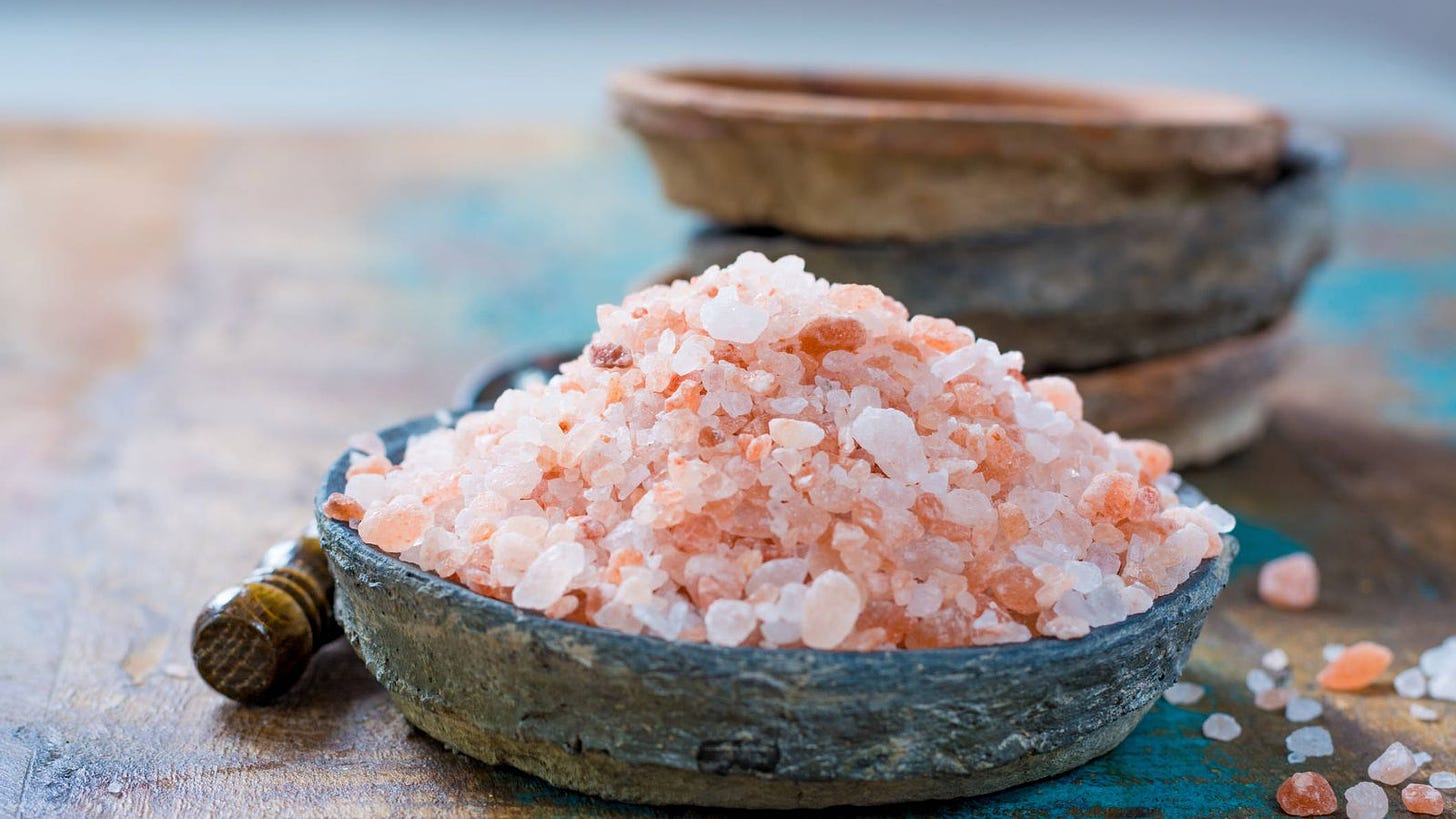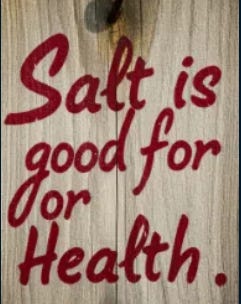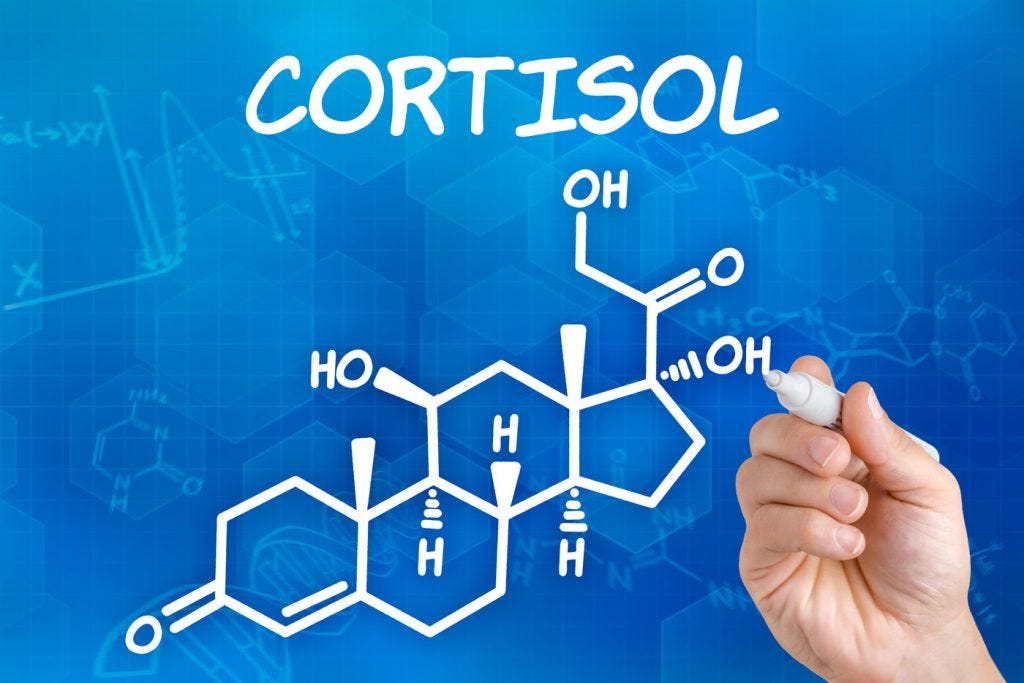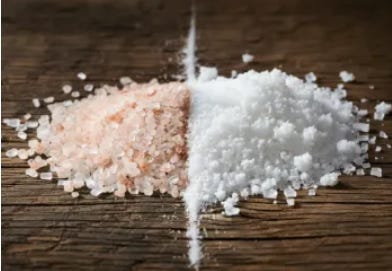From ancient kitchens to modern tables, salt has long been celebrated for its ability to elevate food flavours, as well as contribute to human health.
However, for the last forty years, doctors, the government, and health associations have painted salt as a dietary villain that causes chronic high blood pressure.
Yet recent studies suggest that the original narrative may be on target: salt is indeed a vital component of a healthy lifestyle
Sodium in Human Health
Sodium plays a key role in several bodily functions, such as maintaining fluid balance, transmitting nerve impulses, and facilitating muscle contractions. It can be naturally found in various foods but is typically consumed in higher amounts through added table salt—which consists of sodium and chloride ions.
Despite the widespread recommendation of low-sodium diets to prevent chronic diseases, the implications of restricting salt intake can be counterproductive. Research shows a concerning link between low salt intake and increased cortisol levels, while sufficient daily salt lowers cortisol levels—a positive development.
This phenomenon highlights the paradox: restricting sodium is supposed to be good for us, yet it seems to cause serious health issues, including muscle breakdown, inflammation, and compromised immune function.
Effects of High Cortisol
Cortisol, often defined as just a stress hormone, actually plays an essential protective role within the body. It helps manage glucose levels, preventing life-threatening scenarios such as hypoglycemic comas. However, if levels are too high it can have harmful impacts, including weight gain, cognitive issues, diabetes, hypertension, muscle weakness, and osteoporosis. It can also lead to Cushing's syndrome, which mimics many symptoms of aging.
Here’s the kicker! We’ve known about the toxic effects of chronically elevated cortisol levels since the early 1960s, and we now also know that increasing dietary sodium intake lowers cortisol levels through urinary excretion (a positive prognosis).
Yet despite the evidence, the American Heart Association still recommends a low-salt approach to achieve "ideal cardiovascular health". However, such diets have not been proven to prevent cardiovascular events, and may even lead to a worse prognosis in patients with established cardiovascular disease and other serious health issues.
A New England Journal of Medicine study even found those with the lowest risk of heart problems or death from any cause were consuming three to six grams of sodium a day (1/2-1.2 teaspoons)—far exceeding the meagre recommended limits placed on us by zealous health authorities.
However, make sure to maintain a healthy sodium-potassium ratio with potassium-rich foods (such as leafy greens, yogurt, avocados, bananas, and citrus fruits) to counteract the potential adverse effects of sodium. Research shows an association between higher potassium intake and lower blood pressure, regardless of sodium intake.
Can We Overconsume?
What if we do overeat salt? The American Journal of Medicine says:
“While excessive sodium intake can be harmful, our bodies are usually good at regulating how much sodium we absorb. Trying to strictly control our sodium intake might not be necessary and could even be harmful.”
In essence, excessive sodium is primarily filtered through the kidneys and the renin-angiotensin-aldosterone system (RAAS). Sure, it’s possible to overwhelm this system, but primarily with hyper-processed foods and unhealthy table salt. If you largely avoid these, you’ll be just fine.
I eat a good amount of daily (nutrient-dense) salt and stop when I don’t feel like I need more. This happens through (1) Satiety: the feeling of fullness and satisfaction, and (2) Nutrient intake: a balanced diet of whole foods hinders overeating a particular nutrient, by making excess intake less appealing.
In an excerpt from, “The Salt Fix,” author Dr. James DiNicolantonio says studies have shown that many people, even those with pre-existing health conditions, are not sensitive to salt's blood-pressure-raising effects. He recommends eating about 3,500 mg of sodium daily; exceeding the American Heart Association’s maximum intake of 2,300 mg a day, and more than doubling their “ideal limit” of less than 1,500 mg a day.
The Type Matters
Unrefined salts, like Himalayan or sea salt, are superior choices over table salt as they retain minerals and trace elements while offering richer flavours, lower sodium levels, and avoiding additives like anti-caking agents. Overall, this makes them far healthier alternatives.
The body craves healthy salt, especially during physical activity or under stress. We don’t need to be concerned as it regulates its sodium requirements and compels you to seek out this crucial mineral in times of need.
Salt's reputation as a health enemy needs a major overhauling. The focus on salt reduction has hugely benefited pharmaceutical companies, while diverting attention from other factors contributing to heart diseases, such as sedentary behaviour, eating poorly, genetics, and underlying health conditions.
We need to recognize that when enjoyed in its natural form and consumed in appropriate amounts, it can safeguard health rather than jeopardize it. So go ahead, season your meals and enjoy the myriad benefits of unrefined salt!
Your presence here is greatly valued, and that’s why all our articles are free on this site. But if you've found that the content benefits your life, please consider supporting it through a cost-effective paid subscription. This plays a vital role in covering operational costs and supports the continuation of this independent, unbiased research and journalism work. Thank you!!
If shy about commitments, feel free to leave a one-time tip!









